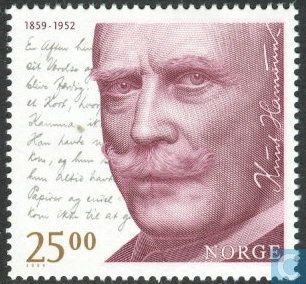Knut Hamsun, born on August 4, 1859, was a Norwegian author and one of the most significant literary figures of the 20th century. He is best known for his novel "Hunger" (Sult) published in 1890 and his novel "Growth of the Soil" (Markens Grøde), which won him the Nobel Prize in Literature in 1920.
Hamsun's writing style was innovative and marked by its psychological insight and exploration of the human mind. His works often delved into the complexities of human nature, existential struggles, and the individual's relationship with society.
In addition to "Hunger" and "Growth of the Soil," some of Hamsun's other notable works include "Pan," "Victoria," "Mysteries," and "Hamsun: An Appreciation." His writing influenced many other authors and had a significant impact on the development of modern literature.
Despite his literary success, Hamsun's political views and actions later in life have been a subject of controversy. In the 1930s, he expressed support for Nazi Germany and Adolf Hitler, which led to criticism and isolation from the literary community. After World War II, he was tried for treason in Norway due to his wartime sympathies but was found to be mentally unfit to stand trial. He spent his final years in seclusion and died on February 19, 1952.

No comments:
Post a Comment